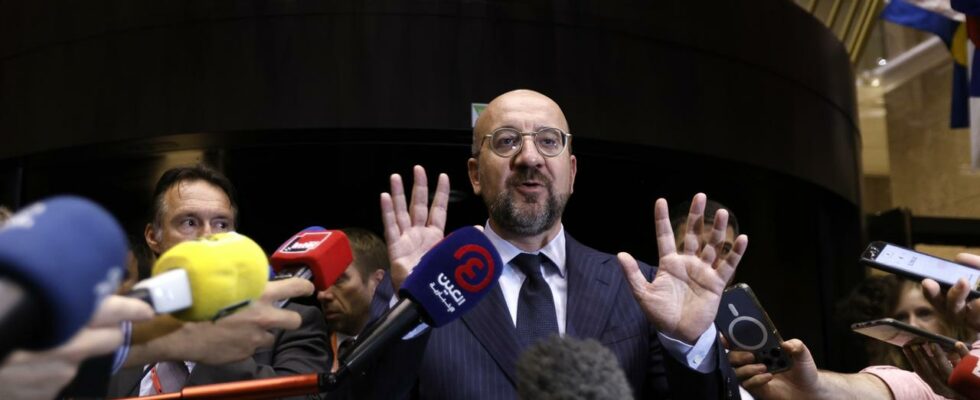EU Commission President von der Leyen’s second term in office is actually considered certain. But the poker game over who will fill the top EU job continues. The dispute is likely to be over the office of Council President.
The special EU summit ended without agreement on the allocation of Europe’s top jobs. “It was a good discussion that goes in the right direction, I think. But there is still no agreement this evening,” said EU Council President Charles Michel last night.
Ursula von der Leyen cannot yet be entirely sure whether she will be nominated by the heads of state and government for a second term as President of the EU Commission. There will be “more clarity” at the regular EU summit at the end of next week, Michel stressed.
Broad support for von der Leyen
The pan-European political parties have made proposals for the posts, said Michel. More work is needed to reach an agreement. He did not provide any details about the proposals.
One of the issues discussed at the summit was a second five-year term for von der Leyen. Croatian Prime Minister Andrej Plenkovic said after the discussions that he had not heard anyone questioning her position. Before the summit, von der Leyen had received a lot of support.
Dispute over term of office of EU Council President
The sticking point in the negotiations is apparently Michel’s successor as Council President. According to diplomats, the EPP family of parties, together with the CDU and CSU, wanted to ensure that the office was not filled immediately for five years. This would mean that they could theoretically lay claim to the office after two and a half years. The Social Democrats rejected this, according to the information.
In contrast to the Commission President and the High Representative for Foreign Affairs, the President of the Council is actually only elected for 2.5 years. However, in recent personnel negotiations, the post was promised to a party family for five years, like the other posts.
Costa and Kallas in talks for top positions
Former Portuguese Prime Minister António Costa is being considered for the position. Like Chancellor Olaf Scholz, Costa belongs to the Social Democratic Party (S&D) family of parties.
The summit also addressed the successor to EU foreign policy chief Josep Borrell. Estonian Prime Minister Kaja Kallas was considered for the post. Like French President Emmanuel Macron, she belongs to the Liberals (Renew) and is considered one of Ukraine’s biggest supporters in the EU.
Increased qualified majority required
A so-called reinforced qualified majority is required for the decision in the body of heads of state and government of the EU states. This means that at least 20 of the 27 EU states had to agree and they must also represent at least 65 percent of the total population of the EU.
Currently, a dozen heads of state and government in the European Council belong to the member parties of the centre-right EPP alliance. This is followed by the group of liberals, which includes French President Macron in particular, and the group of social democratic heads of state and government with politicians such as Chancellor Scholz.
After the summit at the end of next week, the heads of state and government must formally propose a personnel package to the European Parliament (EP). Unanimity is not required. MEPs will then vote, but do not necessarily have to follow the proposals. The first session of the EP will take place on 16 July.
EPP by far the strongest force in the EU Parliament
The bourgeois-conservative EPP became by far the strongest political force in the European elections at the beginning of June, ahead of the Social Democrats and the Liberals. It is therefore considered likely that its top candidate, von der Leyen, will be able to remain President of the EU Commission for another five years.
The presidency of the EU Commission is by far the most important position to be filled after the European elections. The incumbent is the boss of around 32,000 employees who, among other things, make proposals for new EU laws and monitor compliance with the European treaties. He also sits at the table as an EU representative at almost all major international summits such as the G7 or G20.

